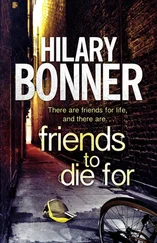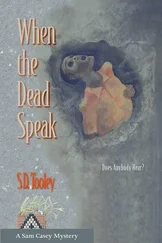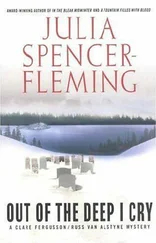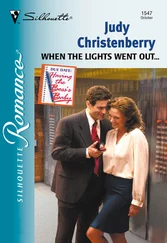Cooper’s blush deepened. He had turned bright red right into the collar of his shirt now, and he seemed to be looking around the room even more frantically to reassure himself that nobody was listening.
Karen slammed her drink down on the bar and left, aware of even more curious glances as she headed for the door, but well past caring. She had to get out. She didn’t trust herself to stay. Not with several large whiskies inside her.
The next day she went to visit her mother again at the Old Manor nursing home. She hadn’t been for weeks. The effort required to make herself do so became increasingly greater. Sometimes she wondered if her visits helped anyone.
Unusually, Margaret Meadows was sitting in an armchair looking relaxed and comfortable, which made Karen feel marginally less guilty. But only marginally. Her greeting to Karen was the same as ever. And nonetheless gut-wrenching for its familiarity.
“Have you come to take me home?” she asked.
“Not until later,” replied Karen. The same lies. The same bending of the truth. The same desire to run and run. To go anywhere in the world, to never ever have to put herself through this again. She didn’t run, of course. Instead she sat down next to her mother and took hold of her hand, stroking it. Margaret Meadows, apparently forgetting her request to go home, smiled at her daughter and promptly fell asleep, her head lolling forwards onto her chest. Karen resisted the urge to try to rest it on a cushion. Such ministrations invariably merely left her mother distressed.
So she just sat there quietly holding her mother’s hand and tried to think happy thoughts which, in that nursing home, and with both her personal and professional lives causing her distress, was pretty difficult.
After a few minutes her mother snapped awake, quick as a flash, in that way she had a habit of doing.
“He wasn’t going to stay with that hairdresser woman, you know,” she said suddenly. “It was me he cared about. Always.”
“What, darling?” Karen was startled. Was her mother really saying what she thought she might be?
“But there were scratches,” she went on, spitting the words out as if they were something she wanted to get rid of.
“What scratches, darling?” Karen asked.
“Scratches,” repeated her mother. “His face had scratches.”
“Whose face?”
“Him, him.” Her mother sounded impatient. With the finger of one hand she tapped the copy of the Daily Mirror which lay open in her lap. Karen still paid for her to have a daily paper, even though it was a very long time since she had seen Margaret Meadows respond in any way to a newspaper, let alone attempt to read one. The displayed page carried a picture of Richard Marshall.
“I didn’t tell, though. I couldn’t tell. Not on him. I loved him.”
Karen felt as if she had been pole-axed. She had more than once over the years tried to ask her mother about her part in the tragic events of all those years ago. It had never got her anywhere. And in recent years she did not think that her mother even knew what she was talking about.
“Richard Marshall had scratches on his face?” she enquired softly.
“I’ve just told you, scratches.” And with that Margaret Meadows raised her right hand to her face and stroked both cheeks as if showing where the scratches had been.
Karen made herself study her mother dispassionately. At that instant Margaret Meadows seemed perfectly alert and lucid.
“Was that the night he came to see you, the night he brought the little girls around?” Karen asked, remembering vividly all over again her own half-view of the proceedings from the top of the landing.
“What?”
Karen looked deeply into her mother’s eyes, trying to decipher what lay within her confused head.
“Was that the night he came to see you, brought the little girls around?” She repeated the question in as calm a fashion as possible.
“Who?”
“Richard Marshall?”
“Who?”
Karen squeezed her hand more tightly. Margaret Meadows’ eyes had acquired the frightened bewildered look her daughter knew so well, the look that indicated that she didn’t understand what she was being asked, that she didn’t understand anything very much and remembered even less.
Karen tried one more time.
“You remember Richard Marshall,” she prompted, pointing at the photograph of him in the newspaper still lying open on her mother’s lap. “You looked after his children when his wife disappeared.”
And you had an affair with him, too, she thought obliquely. An affair neither you nor I ever told anyone about. And apparently, even after he moved Esther Hunter into Parkview, you carried on believing in him, carried on covering up for him .
Her mother glanced down briefly at the paper, then screwed up her features into an expression of pure anguish. “Richard who?” she asked, her brow creased into a deep frown.
“It’s all right, darling,” muttered Karen. “It’s all right. Just forget it.”
She knew, however, that her mother already had forgotten it. If Margaret Meadows had been as lucid as Karen thought for just a few seconds, then she was no longer so. She was quite sure that her mother had been telling her that Marshall’s face had been scratched that fateful night. Quite sure. But the moment had passed.
That, and anything else she might know, was once more locked inside Margaret Meadows’ troubled head.
And the one thing her daughter was certain of was that nothing would be gained by passing on the half-delivered message to anyone else. Not now. It was far too late. Margaret Meadows could never be a witness. She could not even give a statement. The best thing that Karen could do, for her own sake as well as her mother’s, she knew, was to keep quiet. Just as she had for nearly three decades.
Richard Marshall was given leave to appeal and his case came up at the Court of Appeal in London’s Strand three months later. Karen accompanied Sean MacDonald, just as she had done at the trial. She felt that she could do no other. However, she had few doubts about the eventual outcome, she could really see little alternative to Marshall being released. The appeal proceedings were every bit as much of an ordeal for her and for Mac as she had expected.
Jennifer Roth appeared under her given name of Janine Marshall, although Karen, hard as she tried, could not think of her as that. Indeed, when she gave her evidence it was a bit like watching a ghost talk, Karen thought. She was, however, both clear and succinct. She repeated almost word for word what she had already said in her statement to the police — that her mother had tried to kill her and her sister Lorraine before succeeding in killing herself, and that, far from harming his family her father had done what he thought was the best thing to do, albeit misguidedly.
The prosecution counsel, David Childs again, did his best to cast doubt on her testimony, pointing out, as Karen had tried to earlier, that the young woman must have been deeply scarred by her childhood experience and would undoubtedly benefit from psychiatric help in order to work through the minefield of her memories. But Jennifer, speaking quietly in her nice public-school accent, was extremely convincing. David Childs also attempted to explore the aspect of Jennifer’s, or Janine’s, missing sister. Jennifer merely insisted that she had never known where her sister was and had no wish to upset her life by involving her again.
Richard Marshall took a similar attitude, just as he had done in further statements made since the intervention of his younger daughter.
“I lost touch with my elder daughter Lorraine a few months after I placed both girls with families,” he said. “I believe that her adoptive parents took her abroad, but I don’t even know that for sure. And I never tried to find out. Although I was more than happy that Janine’s new family were prepared to keep in touch with me and tell me how she was getting along, I understood the attitude of Lorraine’s family. I told both families more or less the truth. But the girls had to be protected. That was why I acted in the way that I did. I didn’t want them to grow up with the stigma of being my daughters, living in the shadow of their mother’s disappearance. Although it hurt me, I was and am happy to think of Lorraine growing up without that shadow. She may even have shut the whole thing out of her mind, I don’t know. But she has never tried to contact me, and I respect that. I have no intention of revealing even the names of her adoptive parents or any details that might identify them in this court today or to anyone at any time. And I honestly don’t even know the name Lorraine uses now.”
Читать дальше












